Bear came cantering back with the ball, his gait rocking back and forth, his tail wagging. His round eyes were like brown marbles, bright and alert, and he smiled broadly, panting up at her. Bennie felt a rush of warmth for the animal, marveling at how happy he could be with so little. He didn’t need anything but an old tennis ball and a trash-strewn vacant lot. There was a lesson in it, even for a woman with two Ivy League degrees: Best not to become too attached to things, even to houses. But then again, the dog didn’t employ three young lawyers, in one of the toughest job markets ever.
She threw the ball, preoccupied. She couldn’t live her life looking over her shoulder. She wanted to know where Alice was. She knew that Alice wouldn’t be found if she didn’t want to be, not by conventional methods. There was one way she could track her down, but she hadn’t wanted to find her enough before to resort to it. But as distasteful as it was, the time was now. It was the night of last resorts, after all.
Half an hour later, Bennie had consumed a sandwich and was driving out of the city, steering her old white Saab into the dark night, heading southwest onto I-95. She would be there in under an hour, sans driver’s license, but she doubted that was a felony. Traffic was light because the rush hour had passed, and the road opened up ahead, its asphalt smooth and dry.
The Saab whizzed past exits for the Philly airport, then the Red Roof Inn, oil refineries, and lighted billboards that had sprung up around the Tinicum Nature Preserve, engulfing it with catalytic converters. Bennie hadn’t come this way for about two years, since the last time she saw her father. Which was also the first time she saw her father. Bennie hadn’t known any of her own history until Alice surfaced two years ago, and her mother had been too ill by then to speak, much less explain their past, or her secrets. But what Bennie learned when she uncovered the truth made her understand why her mother had kept it a secret. In particular, the truth about her father, William Winslow.
Bennie gritted her teeth at the memory. Two years ago, Bennie had traced Winslow to the Wilmington area, where he worked as a gardener for a wealthy family on a country estate. His blond hair had thinned and turned gray, and his eyes were a light blue color that matched hers exactly, but for the odd chill behind them. He’d kept track of her and Alice in his own crazy fashion, and he was Alice’s only tie to Philadelphia. If anyone would know where Alice was, he would, but first Bennie had to find him. She had tried the last phone number she had for him before she’d left, but there had been no answer. She didn’t know if he still lived in Delaware, but maybe the family would, and stopping there had helped her last time.
“Ready or not, here I come,” she said aloud, not terribly surprised at the anger underlining her tone. She probably should have gone to therapy about her feelings, but she’d been too busy, then too broke. She’d read self-help books about dysfunctional families, but she wasn’t self-helped.
Her fingers tensed around the hard steering wheel, and she noticed her speedometer jitterbugging at eighty miles an hour. She passed a red Miata, then a long McDonald’s truck with a mile-high hamburger on the side. She was feeling more nervous the closer she got to her father. She accelerated, ignoring the speedometer and the other cars. She felt as if she were a bullet streaking toward a target, the trajectory flat, straight, and true. She would see her father and go right through to Alice.
She checked the Saab’s clock: 8:22. She’d be at his house in half an hour. She whipped past strip mall after strip mall, their neon signs glowing in the dark, the way she had remembered it. Soon the landscape would change to the lovely countryside right outside Wilmington. The estate her father lived on was in the middle of gorgeous horse country, with acres of rolling hills and rustic split-rail fences. Bennie remembered the last time she visited; it had been almost twilight then, and scattered bay horses had been grazing the pastures, the feathery edges of their black tails flicking at invisible flies. She had resented the fact that her father had lived amid such beauty while she and her mother had gone from block to block in the city, chasing lower rents. Her poor mother.
God rest her soul. Bennie ached inside, missing her, and knew that if she permitted that pain to stay, she would be lost. She’d have to pull over and cry, and she wasn’t sure if or when she would stop. There were many nights she didn’t, at home in her bed, and the notion seemed fitting. Her mother had sacrificed so much for her, Bennie owed her a few sleepless nights. It was all she could give her now.
Go, a voice said, and Bennie wasn’t sure if it was hers or her mother’s. She didn’t know if her mother would approve of this mission. But she knew she would understand. And Bennie obeyed.
Over a half hour later, she’d arrived at a large white sign that stood where her father’s mailbox used to be. HUNT COUNTRY ESTATES, it read in Olde English letters, and a curved brass horn flanked the words. Bennie got out of the Saab, dismayed. She looked behind her, then ahead. Fake Victorian gaslights illuminated the place. She had the right street. This was the place. She’d circled and circled and ended up here. But where was her father’s house?
She blinked, trying to remember the place two years ago. There had been a gravel road right on this spot, with a fork on the left that led to her father’s cottage and garden, and an almost paved road on the right, tree-lined, that had led to the main house. The main house of the estate had stood on the hill-a huge white mansion with colonial shutters and separate wings, like an embrace. A maid who had answered the door had helped Bennie, the last time.
But Bennie stood now on a smooth single road with too high curbs and iron grates for public water. The new road was lined with bright streetlights and curled to a guardhouse and a grand entrance with its tall iron gates fixed open. Through the gates lay about two billion brick, stone, and stucco-fronted houses, with sculpted terraces and lighted water fountains. The houses looked brand-new, and the slim trees planted on the perimeter were hardly leafy, with lights illuminating the slimmest of trunks, still paper-wrapped for protection. The land had to have been developed right after she’d seen her father. How could so much have changed so fast? They had taken away the hunt country and built the Hunt Country Estates.
Bennie strode to the guardhouse, of white clapboard with a cedar shake roof. On its front a small sign read Master of the Hunt in the same Olde English letters, and inside the guardhouse sat a young man watching baseball on a portable TV. He was dressed in a fake riding helmet and red hunt jacket. Even foxhunters loved the Phillies.
“Tallyho!” the young man called out when he spotted Bennie at the window, and gave a white-gloved wave.
“Tallyho?”
“They make me say that. Doesn’t it blow?” He twisted a toothpick in his teeth, and an eyebrow pierce peeked subversively from under his velveteen brim. “This is the dumbest job I ever had.”
“I used to waitress in a green dirndl. I had to say ‘Welcome to Little Tyrol.’” Bennie shuddered at the memory. Even being a bankrupt lawyer was better.
The young man smiled. “You lost or something? I-95 is up there three blocks, then take a right.”
“I’m not lost, but didn’t there used to be a big estate here? A huge white main house, a white cottage, and at least fifty acres of land. In fact, this whole area used to be horse farms.”
“I dunno. I just work here.”
“Damn! When did you start?”
“Six months ago. It’s still not sold, all the way. They’re asking a million bucks for these cribs.” The young guard’s attention was diverted by an onyx Porsche Carrera rumbling through the gates, and he gave his little wave and called out, “Tallyho!” Then he turned back to Bennie.
Читать дальше
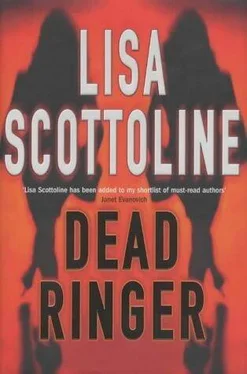
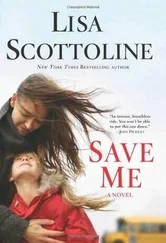
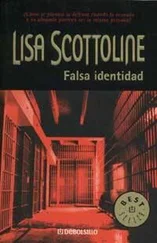
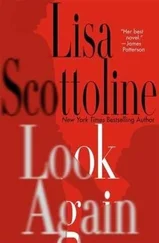

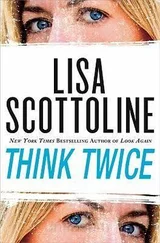
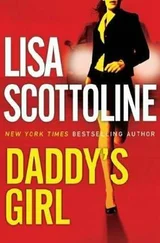
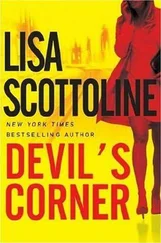
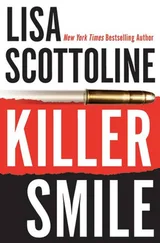
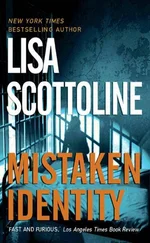
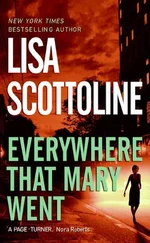
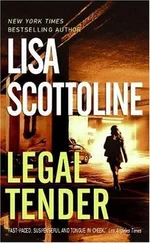
![Джеймс Чейз - Safer Dead [= Dead Ringer]](/books/430347/dzhejms-chejz-safer-dead-dead-ringer-thumb.webp)